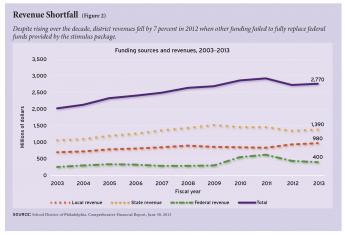Related Topics
Right Angle Club: 2015
The tenth year of this annal, the ninety-third for the club. Because its author spent much of the past year on health economics, a summary of this topic takes up a third of this volume. The 1980 book now sells on Amazon for three times its original price, so be warned.
Philadelphia School System
New topic 2015-02-08 20:35:10 description
Philadelphia School Crisis

|
| John Caskey |
John Caskey, a professor at Swarthmore, recently visited the Right Angle Club to share his insights into the origins and potential solutions to the approaching collapse of the Philadelphia School system. The problem, everyone agrees, seems even more devastating in the light of the eminence of the Philadelphia schools, public and private, until very recently. While the elephant in the parlor is the 1940's migration of poor black people from the Southern states to the northern ones, it does seem to be true that the very eminence of the Catholic School system, and the Quaker private school system, has served to aggravate rather than rescue the situation. For example, when parochial schools are forced to close, there is no pool of tax money to transfer with them to charter schools. Philadelphia had been able to afford better public schools while the private schools supported themselves. But when their support diminished, their closure did not unleash any funds to help the public system. By contrast, when a public school closes, the tax money is transferred to the charter schools. One-third of all children entering Philadelphia charter schools are coming from parochial schools. It would be interesting to learn whether the total school budget, public and private together, had actually been less than it is today.
Without access to the specific facts, it would seem likely the number of children attending Philadelphia schools must have shrunk considerably in the past few decades. You can close or even sell, empty school houses, but pensions reflect the number of teachers when the city population was larger. Something like that seems plausible as an explanation for Philadelphia teachers receiving an average of $70,000 apiece, while at the same time, reliable figures seem to show an average per teacher employment cost of $110,000. Possibly true, but probably misleading. Almost everyone acknowledges we cannot afford the municipal pension system of the Great Depression of the 1930s, but it is almost too late to do much about those costs, magnified as they must be, by having a disproportionate amount of the school budget go to retirees.

|
| Collapse of the Philadelphia School system |
The social intractability of the problem is brought out by some comparisons of the source of school revenue. Because Philadelphia is poor, while the suburbs are comparatively affluent, one would expect the suburbs to have a greater proportion of their school budgets derived from local property taxes. Actually, matters are exactly the reverse. Poor as it is, Philadelphia is supporting over 80% of school costs from local taxes, while the suburbs are much more supported by state and federal sources. The failing city school system is in fact draining the limited local real estate taxes away from other expenditures which might restore some of its affluence. And it isn't likely to restore the balance, any time soon. Real estate specialists refer to the "donut hole", by which they mean that parents of school-age children move away to better and safer schools. As soon as things improve somewhat, we can expect school children to flood back into town, bringing their expenses with them. We have yielded to expedients which in a sense represented our financial reserves. We must overcome this obstacle before much progress is even possible.
Even our political correct speech gets in the road of progress. There is a notable reluctance to blame the school problem on the migration of poor black people from the rural areas of the South, to the inner cities of the North. But it is plainly true; our resources have been overwhelmed by this phenomenon of the 1940s. Air conditioning did improve the livability of the South, drawing Northern industries Southward. Since this aspect of the issue is an interstate problem, federalism hampers the efforts to send tax money Northwards to balance things. We mustn't talk about things like that, right? To some considerable degree, this problem resembles the international balance of trade. When trade migrates in one direction, funds must migrate in the opposite direction. To whatever degree our fastidiousness of speech hampers this self-balancing, it makes the problem worse.
Originally published: Friday, February 06, 2015; most-recently modified: Friday, May 31, 2019